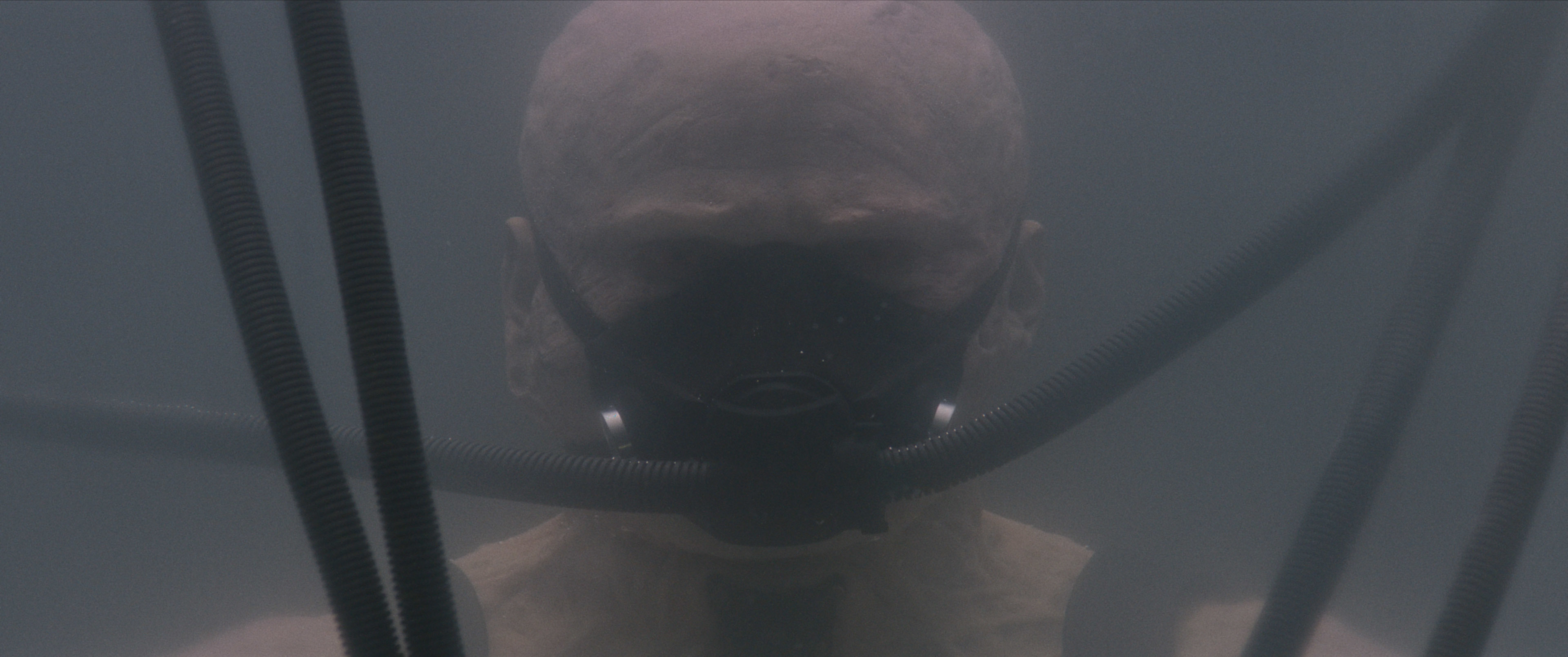‘Maestro’ Review: A Directing Achievement That Left A Lot of Story on the Table

Maestro. Bradley Cooper as Leonard Bernstein (Director/Writer/Producer) in Maestro. Cr. Jason McDonald/Netflix © 2023.
Bradley Cooper‘s Maestro depicts the life of famed American composer and conductor Leonard Bernstein, but he isn’t focused on his life’s work or accomplishments (which are rarely brought up during the two-hour runtime). Cooper’s attention is mostly set on his marriage to Felicia Montealegre (Carey Mulligan), a layered relationship that was a mirror for both people involved in it.
Bernstein, a people enthusiast and enamored with his art more than anything or anyone else, didn’t exactly believe in monogamy. His love for Felicia is never questioned, but it was never enough for him. He had so much to give to the world he couldn’t just concentrate on a single person to love, not even a single gender or age range. There are several ways to look at that, of course. Lenny Bernstein saw it probably as a natural thing, a way for him to seize every second of his life; but he did so at the expense of Felicia’s happiness — he didn’t exactly hide it, after all.
Maestro is an intimate portrayal of an artist who lived life to the fullest, but also the depiction of the woman he overshadowed in the process. A talented actress herself, she quickly started fading into the background — from being an afterthought in public interviews to going unnoticed when she left Bernstein’s side after a big performance. But Cooper and co-writer Josh Singer aren’t as interested in picking heroes and villains as they are in recreating real-life scenarios between the two to try to examine up close a complicated marriage. For all she knew about him, Felicia never left him either, and at least the film doesn’t present him as a controlling husband.

Maestro. (L to R) Carey Mulligan as Felicia Montealegre and Bradley Cooper as Leonard Bernstein (Director/Writer/Producer) in Maestro. Cr. Jason McDonald/Netflix © 2023.
Mulligan excels in the role, but all the film’s triumphs are Bradley Cooper’s doing. While the film as a whole is a big step down from 2018’s extraordinary A Star Is Born, Cooper’s directing skills are a massive improvement. His confidence with the camera alone is something to marvel at — not just the way he moves it, but, more often than not, the way he doesn’t. His turn as Lenny Bernstein is equally transcending, especially as the film goes on and he ages. Once he starts to require more makeup to add more years to his skin, Bradley Cooper completely disappears into him. It’s not just his physical appearance or even the way he models his voice, but the small mannerisms or nuanced movements he makes are all in character, showing he has a perfect understanding of who he is and when in time.
One of the most advertised scenes in the film is, of course, his conducting of Gustav Mahler’s second symphony (“The Resurrection”) at the Ely Cathedral in 1973. Cooper has explained in interviews and promotional videos for the film how much work he put into that particular scene, and how the first number of takes didn’t really work, and it wasn’t until he insisted on doing one more the day after that he finally got the rhythm right. Now, am I able to tell that from watching him? Absolutely not. It’s a nice bonus, but I’m not an expert in music to know whether he’s doing it right or wrong. Does that qualify as a good performance?
I would argue that the Ely Cathedral was a directing feat as much as it was an acting one. Cooper’s performance is a lot more subtle and remarkable in his intimate moments with Carey Mulligan and his various male affairs, including a particularly heartbreaking one with Matt Bomer as David Oppenheim.

Maestro. Bradley Cooper as Leonard Bernstein (Director/Writer/Producer) in Maestro. Cr. Jason McDonald/Netflix © 2023.
However, as much as Maestro is a technical achievement for everyone involved, especially for Bradley Cooper, I would argue that there’s a lot more for him to have explored. If Oppenheimer was criticized back in July for not focusing enough on his marriage and not giving enough time to Emily Blunt’s character, Maestro is the anti-Oppenheimer, where it feels underwhelming to focus a two-hour biopic of Lenny Bernstein on his relationship with his wife. For starters, there is an entire decade of Bernstein’s life that is stripped from the story, and that could have probably added more context and even provided more layers of complexity to his life.
Rather than Oppenheimer, if there is a movie to compare Maestro to is Todd Field’s Tár, which is what it should have aspired to be. Instead, we’re left with an empty casket, a film devoid of a pumping heart that could have been so much more. Maestro opens with the following quote from Bernstein: “A work of art does not answer questions, it provokes them; and its essential meaning is in the tension between the contradictory answers.” If that’s not the definition of art, I don’t know what is. But the questions Cooper and Singer raise with the film are mostly related to Lenny and Felicia’s love story, and how it survived all battles, except for one, because of how fearless she was.
The film is not a love letter to nor a critique of the musician. It’s a fruitless attempt to see life through the eyes of the greatest American conductors of the 20th century. Do we have a better understanding of who he was by the end? Yes, absolutely. But it still feels like we’re missing a big chunk of the picture, which was probably going to happen either way. Maestro is a movie that I admire from a technical point of view rather than enjoy as a story. There’s enough in it for me to go back and watch it at another point and see if it clicks better. If you stripped it for parts and released the scenes on YouTube, I’d probably think they’re from the best movie of the year. They just didn’t come together as a whole.
Maestro is currently streaming on Netflix.
Miguel Fernández is a Spanish student that has movies as his second passion in life. His favorite movie of all time is The Lord of the Rings, but he is also a huge Star Wars fan. However, fantasy movies are not his only cup of tea, as authors like Scorsese, Fincher, Kubrick or Hitchcock have been an obsession for him since he started to understand the language of filmmaking. He is that guy who will watch a black and white movie, just because it is in black and white.






